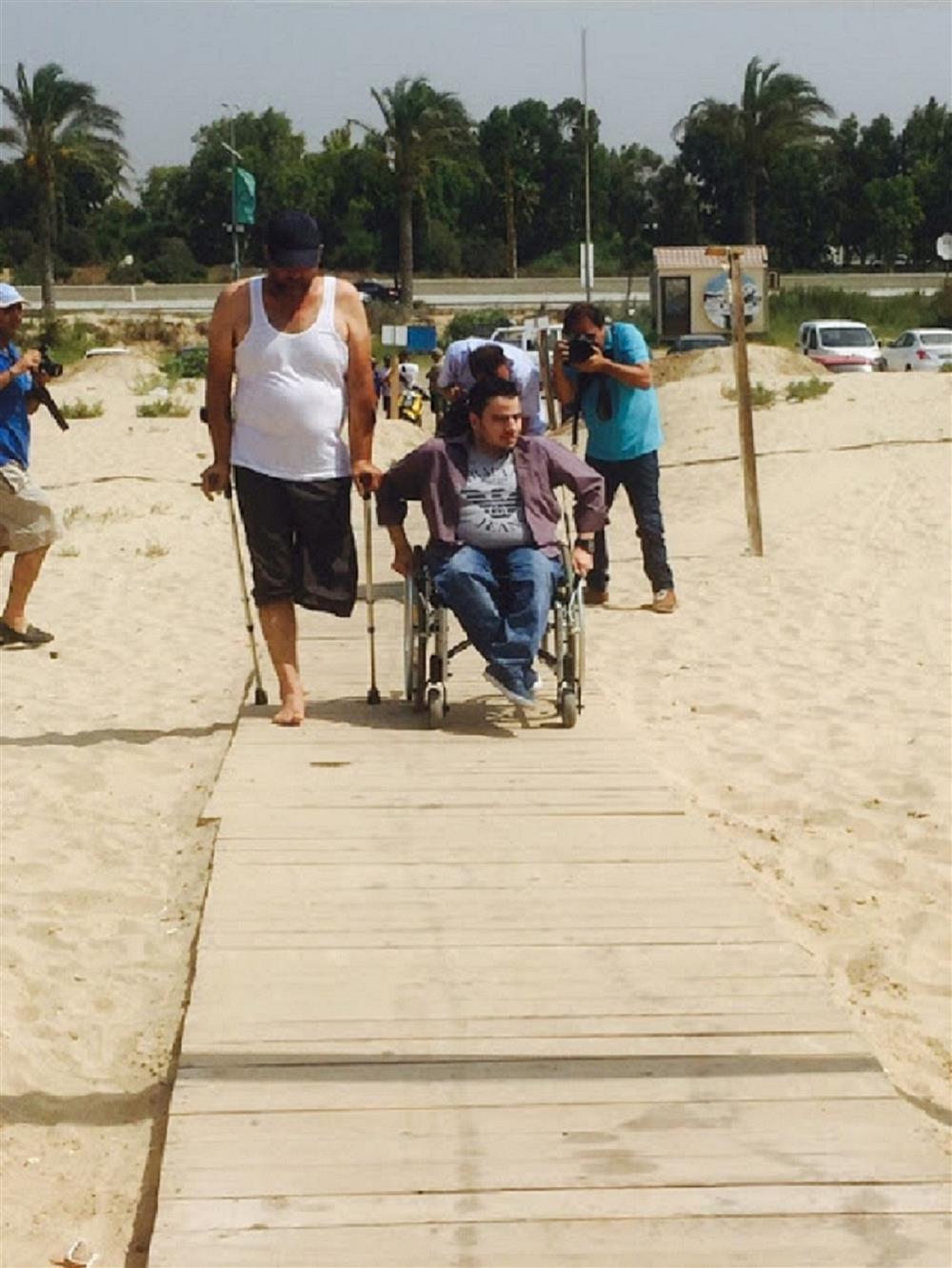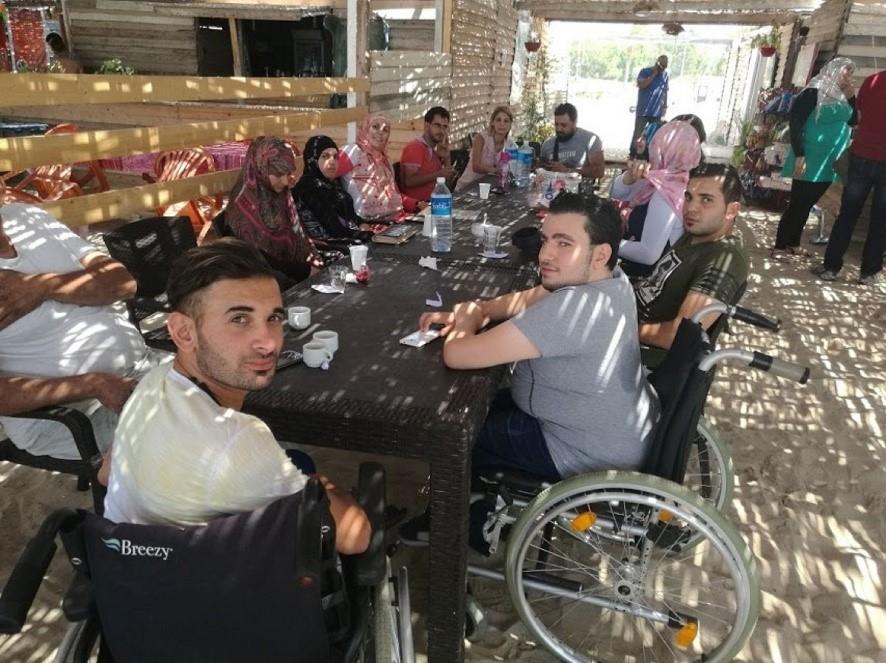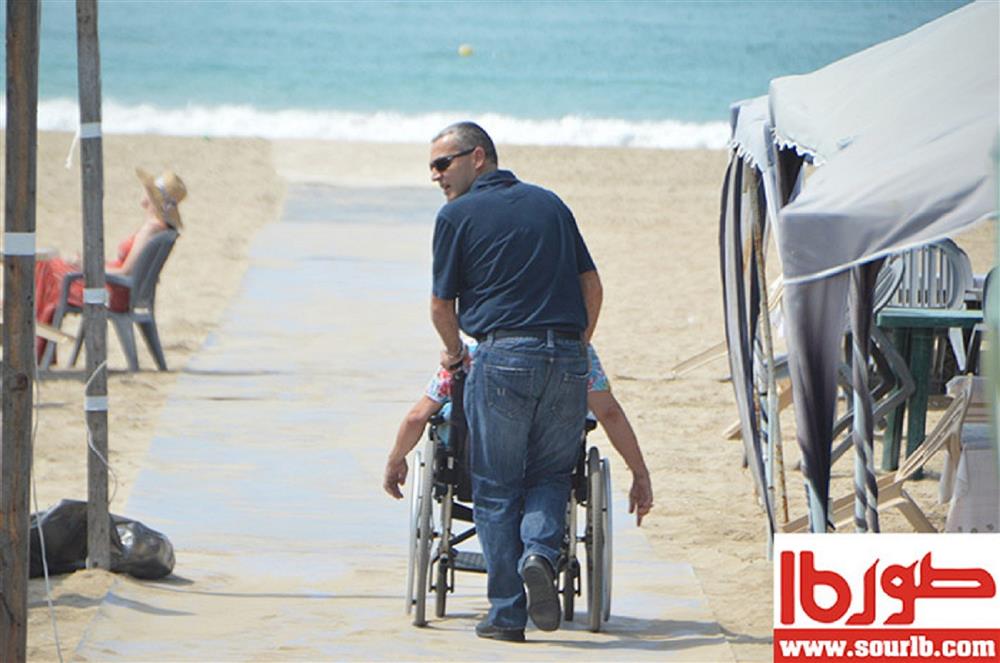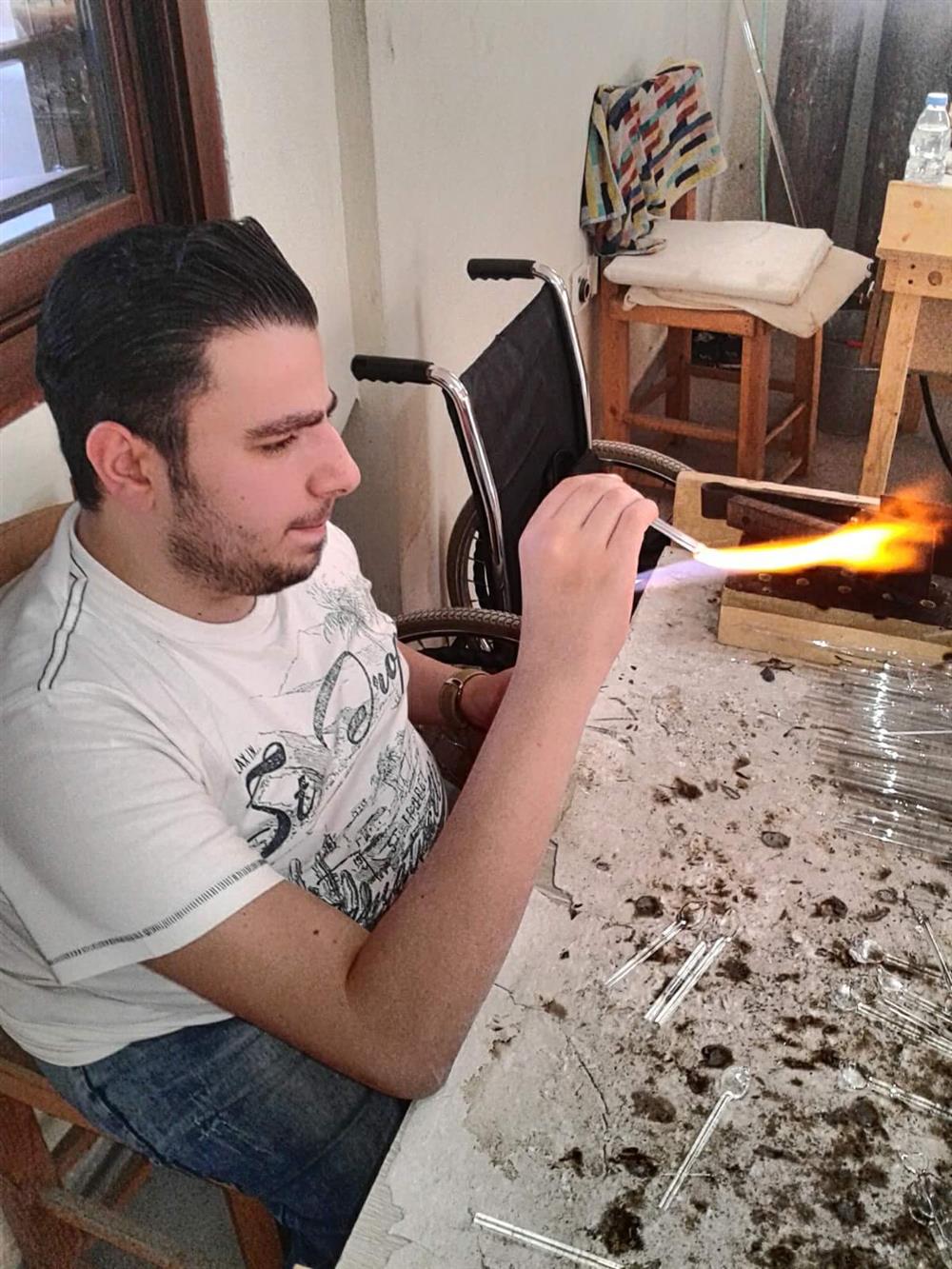Two-year inclusive tourism project for tourist sites
- Organization
- LPHU - Lebanese Physical Handicapped Union
- Country of Implementation
- Lebanon
- Region
- Asia & Pacific
- Subregion
- MENA
- Start Year
- 2016
- First published
- 31.01.2018

Solution details
People
“The accommodation of the public beach tent in Tyre gave me the joy of my favourite sport again - swimming independently.” Souheil, an amputee and Inclusive Tourism Project beneficiary
Problems Targeted
Lebanon’s tourism sector still does not comply with standards of accessibility for persons with disabilities because many decision makers within the tourism sector have not yet recognized the importance of doing so.
Solution, Innovation and Impact
The Inclusive Tourism Project improves accessibility and inclusion standards at four popular tourist sites: The Old Market of Byblos City, the beach of Tyr, the Shouf Biosphere Reserve and guest house, and the historic fort of Baalbek. The project consists of a combination of architectural modules, training workshops for staff, and technical consultations to integrate accessibility on the sites. Actions include building ramps, improving access, and creating brail and audio support for persons with various disabilities. Another objective of the project is to allow persons with disabilities to participate as employees and business entrepreneurs. Persons with disabilities were offered assessment sessions and were then supported by intensive, rapid vocational training to prepare them to enter the tourism labour force. This resulted in 50 people receiving jobs with tourism companies and 30 securing material support for launching self-employment projects in the field of tourism, such as establishing beach kiosks for selling food and drinks in the above-mentioned sites. The project’s first year has had a positive impact on the commitment of public and private-sector stakeholders towards supporting the adoption of an inclusive tourism policy, and has resulted in the endorsement of the Beirut Declaration as the first national document on inclusive tourism in Lebanon.
Funding, Outlook and Transferability
The project is in the process of being replicated by the Ministry of Tourism in Lebanon. Consultations with LPHU are taking place to benefit from the project’s modules and strategies for adopting inclusive tourism standards in other regions around the country, starting with the renovation of other sites in the ancient city of Baalbek. The Inclusive Tourism Project is funded by civil society (founders, friends, grants, crowd funding, etc.) and within the framework of the AFKAR 3 programme – an EU-funded programme working on defining a strategy for dialogue and cooperation between the public sector and civil society to improve the protection of human rights. All produced modules, training workshops, and technical consultations are currently offered for free, and LPHU is evaluating strategies to make the project self-sustainable soon.
Media
Pictures
Videos
Downloads
Life Story

THE STORY OF WAEL GALMOUCH, USER OF THE INCLUSIVE TOURISM PROJECT IN LEBANON
“Now I can even invite some of my friends with disabilities to the beach.”
I am Wael Galmouch, and I have always been fond of going to the beach, where my friends and I would walk around and relax. Then I had my accident. I became physically disabled, and since the beach tents that we used to go to were not accessible for people with disabilities, I had to wait for the few occasions when my friends would carry me there. But it was not the same as before, because I had to stay in one spot. I could not reach the water, and we had to cut our trip short when I needed to use the bathroom. Things changed, however, when the Lebanese Physical Handicapped Union initiated the “Inclusive Tourism” project in Lebanon and adapted tent number 19, the dock from the parking area to the water, in addition to providing an accessible bathroom and menu. Now I am back to visiting the beach as I used to do before my accident, and I can even invite some of my friends with disabilities to join me now that it has become available for all.
Related information
- Connections
- 2
-
Organization
- People

